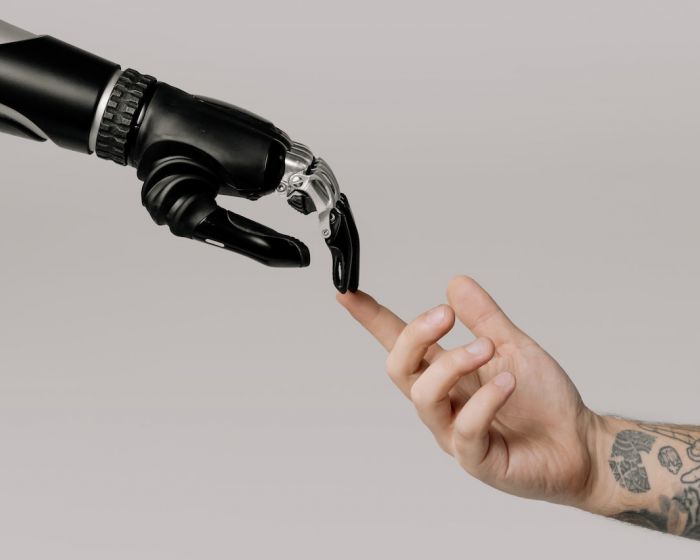Each website is unique in its own way. Trends in e-commerce web design include animation, 360-degree product previews and advanced filtering.
Trends don't guarantee high conversion rates and great user experiences. Every e-commerce website should be able to provide relevant and competitive information.
This list contains 10 essential features that will attract online shoppers.
User-Friendly
Good design should aim for simplicity. You don't need to sacrifice elegance to achieve this goal. According to studies, 76% of consumers believe that ease of use is the most important attribute of a website.
Here at EWM, our goal is to make it easier for shoppers to find what they are looking for faster, without adding unnecessary complexity that could slow down the process of purchasing.
Online sellers can sell in minutes, and if they are lucky, seconds. By providing comparison and shopping filters, you can improve the user experience and augment the chances of a sale being closed.
These are some tips to make your e-commerce website more user-friendly:
-Ensure your site is created with effective, visual navigation
-Adding an autocomplete option to improve search functionality
-Including pre-populated form
E-commerce websites should serve to support your business and act as a competitive advantage.
Mobile-Friendly Site
Mobile shopping accounts for 50% of online transactions. A responsive website allows content to adapt to any device to offer the best user experience.
After optimizing its mobile website, Walmart saw an increase in mobile sales of 98%. Intelligentsia also created a better mobile purchase experience, resulting in a 16% rise in mobile transactions.
It doesn't matter how many product pages you have – or how few. With a mobile-friendly site, your ranking will improve and your sales will increase.
High-Resolution Photos & Videos
No more posting one image with just a few bullet points and no price tag. In fact, images are more valuable than text. So much so, that multiple photos should be displayed per product – from multiple angles. Photos should be high-resolution and optimized to load quickly. User should be able to zoom in to get a better idea of the product.
Images are important technical considerations, as they have the power to convert. Adobe states that images that are slow to load or take too much time to load will result in a 39% drop among consumers.
According to Vanity Planet, they experienced a 24% increase in sales by incorporating Instagram photos to their marketing strategy.
User-Generated Reviews
Reviews are a valuable resource for shoppers. They’re extremely reliable, and as such, many people turn to reviews before making a decision to interact with a brand.
57% of consumers will only use businesses with four or more stars. And while negative reviews might be considered problematic to any business, they can actually be positive if the business responds in a timely, professional and resourceful manner.
E-commerce websites can use plugins from popular review platforms like Foursquare, Yelp and Facebook, depending on their website functionality.
Paiwen paddleboards are one of the most innovative e-commerce websites. They use reviews to build social proof and raving fans.
Get Special Offers
Many e-commerce websites use
special offers as part of their standard marketing strategies via email, social
media, and text.
An e-commerce website listing current promotions will drive more sales and improve SEO.
Some e-commerce sites go one step further, using the header section as prime real estate to promote exclusive offers. If shoppers know they are getting a deal, this encourages them to spend more time on the site and buy more.
Wish Lists
Wish lists! Everyone loves them.
One for fashion, another for books, and one for holiday gift ideas. Save, shop,
and then share!
E-commerce websites that don't use wish lists are losing revenue. What could be better than customers saving items they like for future reference? This remarketing technique increases their chances of returning to your site and actually following through with another sale.
Find-in-Store
Some e-commerce websites do not have brick-and-mortar stores. However, any e-commerce site with brick-and-mortar stores must offer a ‘find-in-store’ feature.
Online shopping is a popular way for shoppers to do their research before making a purchase. This is especially true of millennials, who often research online before buying in-store. It is easy to find out which local shops have the products you need, because oftentimes, people don’t want to wait for an item to ship; they want instant gratification.
Similar Items
The mere mention of ‘You might like this’ trigger a release of serotonin, which signals curiosity and excitement. An e-commerce site's ‘Related Items’ feature creates that desirable stickiness effect, which many marketers strive to achieve.
This is how it happens:
Let’s say you’ve added the AeroPress
coffeemaker to your shopping basket.
One section says ‘You might like
this.’
Do you want fair-trade, freshly roasted whole coffee beans? Perhaps a digital scale that measures the exact amount of coffee grounds needed to make the perfect cup?
The picture is complete.
An online seller using the ‘similar items’ feature to sell more is signaling to the buyer that they understand them on a deeper level. Aside from including similar items and similar product categories, merchants can also include a ‘people who purchased this item also searched for…’ section.
Frequently Asked Questions (FAQ)
Complex transactions require trust with the seller and detailed information when purchasing products online.
For example, to feel confident when purchasing a watch, merchants will need to confirm that it is authentic and provide detailed information about the product.
A section containing additional information provides answers to frequently asked questions, which builds credibility and confidence in the buyer.
Social proof
Online sellers and brands that
build trust with buyers emotionally can be a source of advocacy and brand
trust.
It is evident that social connection is important, and thanks to advances in technology, it’s now easier than ever to build relationships with others.
Online sellers will be able to brand themselves by linking social profiles and user-generated material with their e-commerce sites.
Shoppers are bombarded with constant messages of ‘Buy now’ or ‘Don’t miss out on this deal’. Brands that interact with customers on a social level are so much more likely to create loyal, returning customers.
E-commerce brands can use social media to be authentic and create an emotional connection with customers through their products.
Create Amazing Shopping
Experiences
When it comes to establishing your e-commerce website, there are certain features that are probably implemented without hesitation (such as high-resolution images, security features and contact information), and others that take more convincing.
For instance, some might be
hesitant to include user-generated reviews and social sharing elements. Merchants
know that these are the hallmarks of a good design and are best practices, but
for one reason or another, they have not yet implemented them.
It's never too late to get started!
Looking to improve your digital presence and engage with a greater audience? Contact EWM today to discuss your precise web design needs.
Contact our team today.
Further reading:
Here's why a brilliant web design should be a priority for your e-commerce business
Bespoke vs. templated web design: The pros and cons
Choosing the right typography for your brand
The future of e-commerce: What trends we need to look out for








